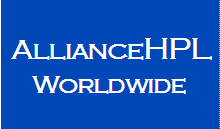Companies that need to focus on sharing information with the public are those that sell mass market goods to an educated audience. A good example of these types of companies are the purveyors of antivirus software (not clients of ours—do I need to disclose this?). In order to drive demand for the product, the public needs to understand the extent of the danger and the nature of the threat. These companies provide the equivalent of Internet weather reports along with cataloging the distribution, damage and frequency of the viruses, worms and other nastiness that they counteract.
Philosophical note on sharing information with the public–
The information shared here is of no direct value to the public and of no direct economic benefit to the company. The rationale behind providing the information is to drive demand for a product or service whether it is an antivirus software package or a DIY home improvement instruction manual.
Another example of the value of sharing information with the public is when the information is the product: publishing companies, government and NGO archives.
Once the basic information is stored electronically, added value can be derived by providing access to these archives. In some cases, there is direct revenue generated by these access requests; in other cases, the access is a low cost service replacement (e.g. IRS forms or other forms and applications).
The consideration is to provide search tools that make it easy for the end user, J. Q. Public, to find the information or resource that he is looking for without resulting in a request for human assistance.


